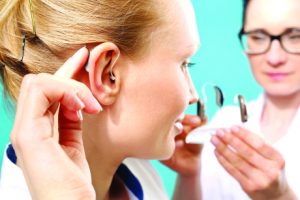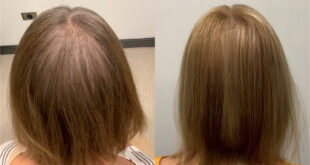By Dana Luzon Coveney, Au.D., FAAA, Board-Certified Doctor of Audiology
 If you’re just starting your better-hearing journey, you’ve probably turned to the Internet for help, guidance, and advice. What you found was most likely the ever-increasing amount of information about “cheaper,” “quicker” hearing solutions like personal sound-amplification products (PSAPs) and over-the-counter hearing devices (OTCs). But what are you really getting with these purchases?
If you’re just starting your better-hearing journey, you’ve probably turned to the Internet for help, guidance, and advice. What you found was most likely the ever-increasing amount of information about “cheaper,” “quicker” hearing solutions like personal sound-amplification products (PSAPs) and over-the-counter hearing devices (OTCs). But what are you really getting with these purchases?
Is It Really a Hearing Loss?
Often, hearing loss means a problem with your inner ear. But sometimes it’s a different problem, such as earwax buildup, a foreign object in your ear canal, or certain types of medications that cause temporary hearing difficulty. Simply purchasing a PSAP or OTC won’t address these types of underlying problems.
Or Is It Something Worse?
Furthermore, hearing loss can be an indication of a more pressing, serious matter. For example, cardiovascular issues often affect your hearing early on because the tiny blood vessels in your ears don’t get nourishment. Simply purchasing a PSAP or OTC wouldn’t help such a critical underlying health issue.
What Exactly Are PSAPs?
PSAPs are wearable electronic devices used only to make a sound louder. Unlike hearing aids, they’re not considered medical devices by the FDA. Though potentially helpful in normal hearing to amplify sounds in situations such as watching TV, listening for animals during outdoor recreation, or hearing a presenter who’s speaking some distance away, PSAPs can’t take the place of properly fit hearing aids.
What Are Some Limitations of PSAPS?
They are neither FDA approved nor recommended to treat actual hearing loss. Also, they bypass the crucial steps of professional testing, programming, fitting, and follow-up. This means a hearing care professional can’t rule out hearing problems or ensure the device is appropriate for your ears. Furthermore, PSAPs are often uncomfortable, difficult to manage, and, with misuse, could cause or worsen hearing damage. Finally, as already mentioned, they only amplify sound — they can’t adjust to your specific hearing loss or help your brain process sound.
What Exactly Are OTCs?
OTCs are meant for adults with mild to moderate hearing loss. OTCs will be regulated by the FDA with clear labeling as to use, safety, and efficacy. They are still a few years away from being available to the public.
What Are Some Limitations of OTCs?
They will only be suitable for mild to moderate hearing loss, and even then, noise processing will be far less than a traditional hearing aid. They won’t always offer a successful fit and will be more of a trial-and-error process.
What Exactly Are
Hearing Care Provider-Fit Hearing Aids?
Provider-fit hearing aids are intended for those with mild to severe hearing loss and are recommended as medical devices by the FDA. They are more than just an amplifier: They have advanced circuitry that can adjust the sound output in real time based on environmental variables like background noise to help your brain process sound. Furthermore, they can be programmed and fine-tuned to fit the needs of your specific hearing loss.
What Are the Benefits
of Provider-Fit Hearing Aids?
A hearing care provider rules out other causes of hearing loss, such as earwax buildup, and ensures hearing devices are an appropriate solution for your situation. A provider ensures an appropriate physical fit and counsels you on adjusting to the devices. Provider follow-ups and clean and checks ensure the devices are working their best for the lifetime of the devices.
What’s Best for Patients?
The effectiveness of hearing aids and PSAPs can vary by product, so it’s best to get a professional hearing test first. Contact Audiology & Hearing Aids of the Palm Beaches for guidance in determining which device is right for your specific hearing needs!
Dana Luzon Coveney, Au. D. , FAAA,
Doctor of Audiology
Originally from Southern NJ, Dana Luzon received her undergraduate degree in Speech Pathology and Audiology from the Richard Stockton College of NJ, and continued on to receive her Doctorate of Audiology at Salus University’s residential program. Her varied clinical experiences throughout her doctoral studies include: VA hospitals, rehabilitation clinics, ENT and private practice settings. Her professional interests include: audiologic rehabilitation and progressive tinnitus devices. Her interests in the field outside of the clinic include: Humanitarian Audiology, and Audiology Awareness.
Dr. Luzon currently lives in West Palm Beach, FL.
561. 627. 3552
4266 Northlake Blvd, Palm Beach Gardens, FL 33410
HearingCareFL.com
Check Also
The Latest Technology With Hearing Aids
Many modern electronic devices these days come equipped with Bluetooth technology. This feature lets you …
 South Florida Health and Wellness Magazine Health and Wellness Articles
South Florida Health and Wellness Magazine Health and Wellness Articles




